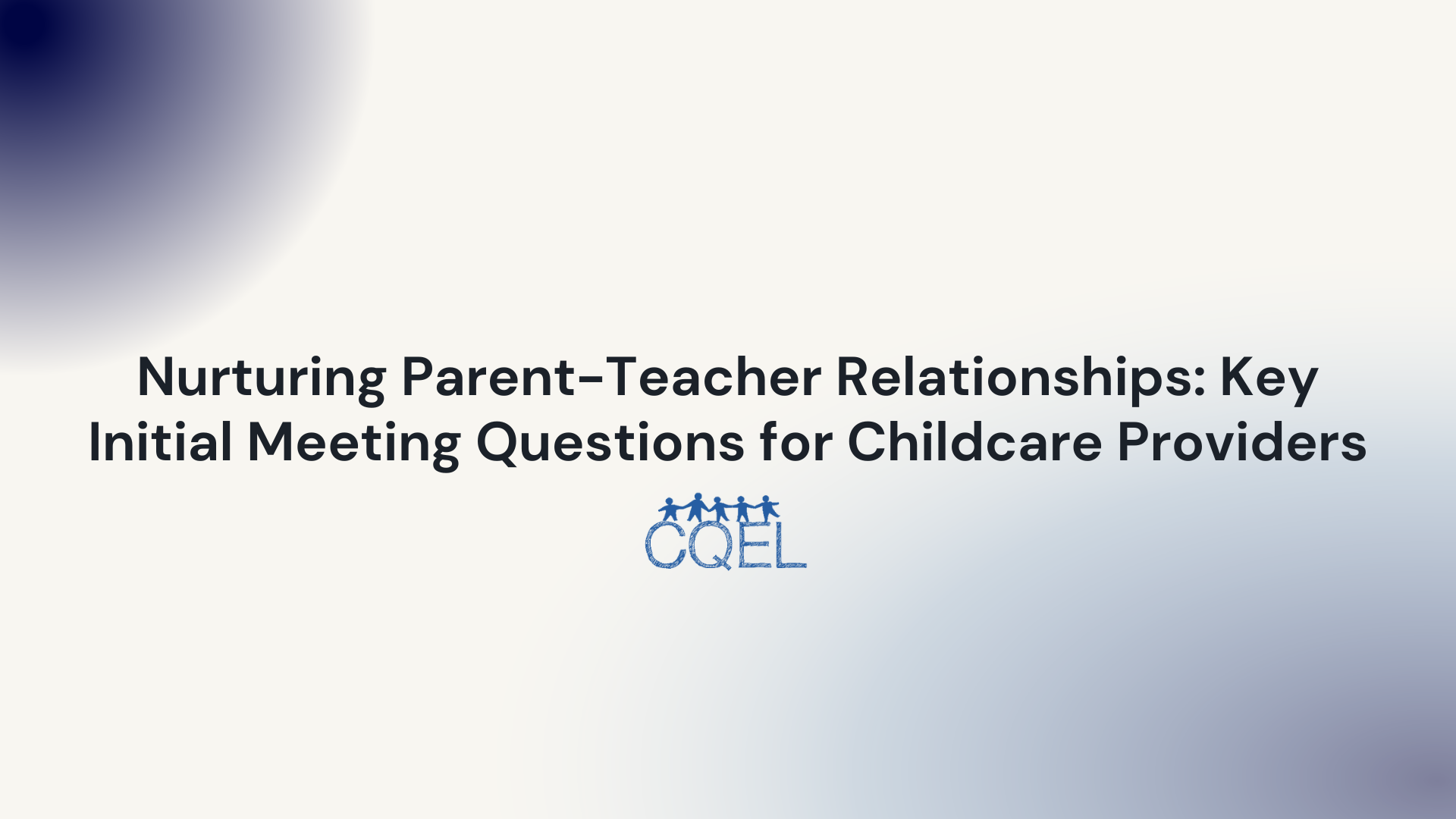Nurturing Parent-Teacher Relationships: Key Initial Meeting Questions for Childcare Providers
The first meeting sets the groundwork for this crucial alliance, allowing you to foster trust, facilitate open communication, and grasp each family's unique needs and expectations.

Building solid relationships with parents is a key aspect of providing comprehensive childcare. The first meeting sets the groundwork for this crucial alliance, giving you an opportunity to foster trust, facilitate open communication, and grasp the unique needs and expectations of each family. This guide will help aspiring childcare providers in California conduct effective initial meetings with parents, and will provide examples of how to phrase important questions.
The Value of the First Meeting
The inaugural parent-provider meeting is instrumental in cultivating a successful relationship. It's during this time that you lay the foundation for open, honest, and effective communication. This meeting is also a chance for parents to express their concerns, hopes, and expectations, creating the blueprint for your partnership.
Preparing for the Meeting: Crafting a Comfortable Environment
Setting up a calm and welcoming environment for this initial meeting is essential. A relaxed atmosphere encourages parents to be open and sincere, helping you to better understand their child's needs and expectations. Moreover, this thoughtful setup communicates to parents that their child's well-being is your utmost priority, further strengthening trust.
Essential Questions to Ask During the First Meeting and How to Phrase Them
1. Background and Family Life
Getting a clear picture of the child's home environment is pivotal in providing care that is in tune with their experiences at home. Ask about family dynamics, traditions, and cultural practices. For example, you could ask, "Could you tell me a little about your family traditions and any cultural practices that are important to you?" These insights will allow you to better cater to the child's unique needs.
2. Child's Interests, Strengths, and Challenges
Learning about the child's personality, likes, dislikes, talents, and areas for growth is equally crucial. Ask questions like, "What activities does your child enjoy the most?" or "Are there areas where you feel your child could use some extra support?" The answers will help you personalize their learning and play experiences at your center.
3. Child's Routine and Habits
Understanding the child's daily routines, eating, and sleeping patterns is important for maintaining consistency between their home life and time at your center. You can ask, "What does a typical day look like for your child?" or "Are there specific routines at home that you think it would be helpful for us to mirror here?"
4. Health and Developmental Concerns
Ask about the child's health history and any special needs to ensure you provide the right support. For example, you could ask, "Is there any medical or developmental information that we should be aware of to support your child best?"
5. Parent Expectations and Goals
Discuss the parents' aspirations for their child and their expectations from you as a provider. Ask, "What are your hopes for your child's experience with us?" or "What are some specific things you would like us to focus on with your child?"
Putting Parental Feedback to Use
Active listening and responsiveness to parents' concerns and suggestions are key. Demonstrating that you value their input not only strengthens your relationship but also allows you to better cater to the child's needs.
Sustaining Communication After the Initial Meeting
The first meeting is just a stepping-stone in your relationship with parents. Regular check-ins and updates can further this relationship, making the parents feel more comfortable and trusting of your services.
The first parent-provider meeting is vital in setting the course for a successful, cooperative relationship, ultimately benefiting the child. With effective meetings, you can lay the groundwork that supports each child's unique developmental journey. Remember to continually refine your approach, stay open to feedback, and embrace continuous learning. Together, we can foster the nurturing environments that every child deserves.
